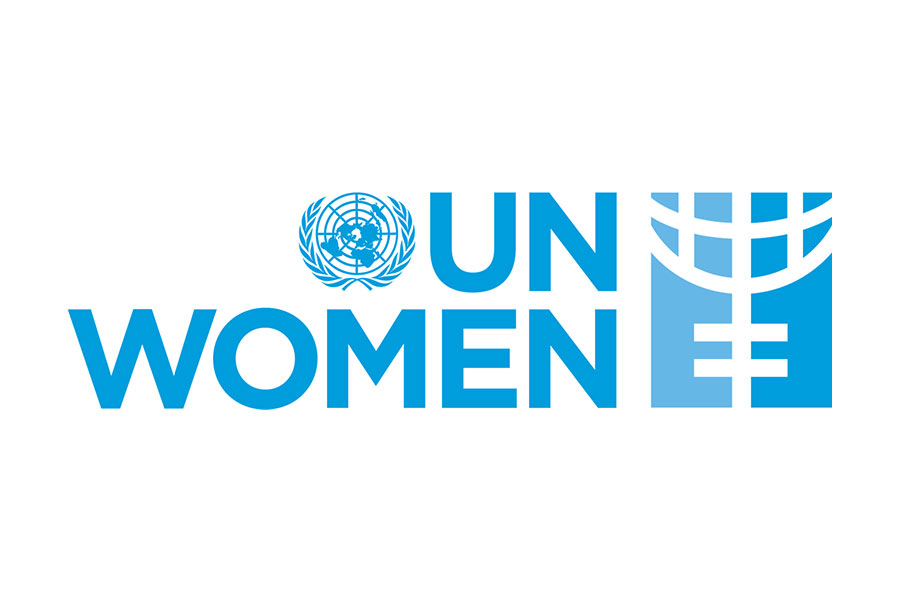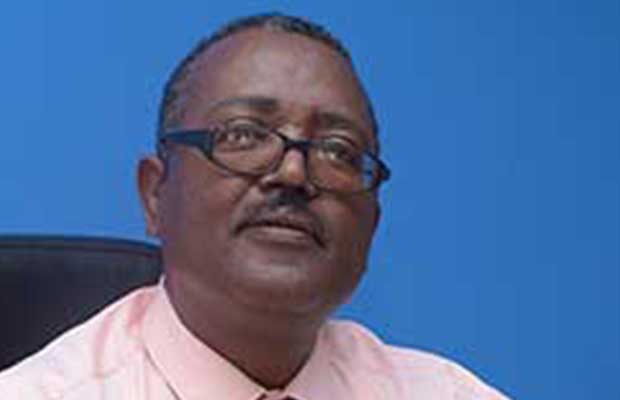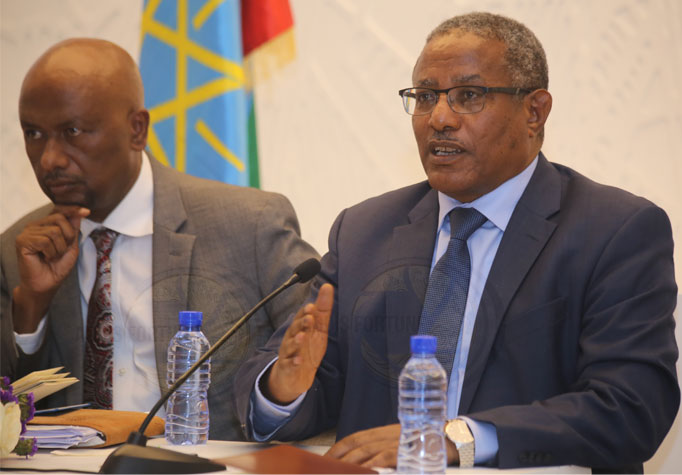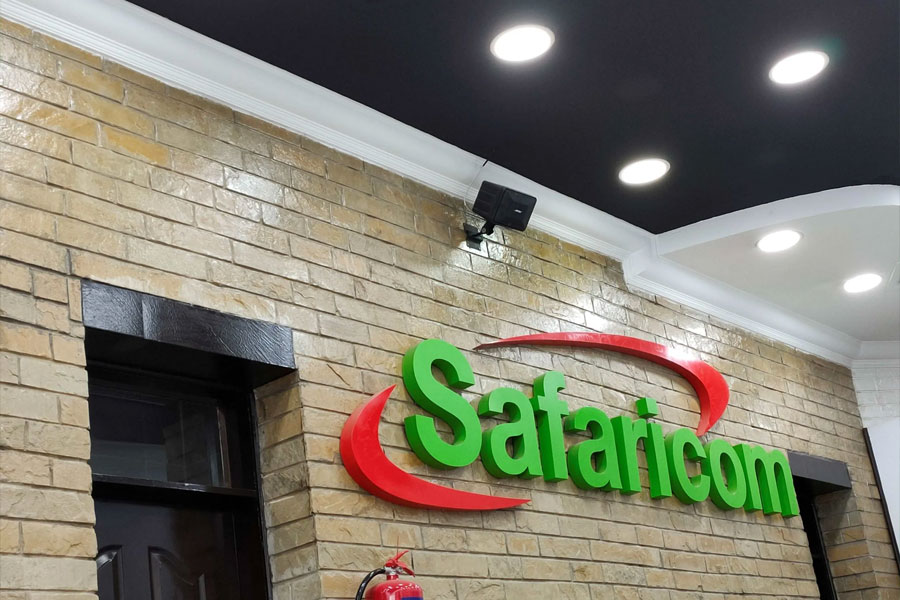
Ethiopia and China have signed a partnership agreement to invest in energy transmission and distribution lines for the nation's mega projects.
The project will build power transmission and distribution lines to 16 industrial parks, part of the Meqelle to Djibouti railway line and to other cities in the country.
The agreement was signed last week as part of the second Belt & Road Forum for International Cooperation held in Beijing, China. Prime Minister Abiy Ahmed (PhD) had traveled to Beijing to attend the Forum with Ethiopian delegates. The Forum has also brought the news about China's cancellation of all interest-free loans it had advanced to Ethiopia through the end of 2018.
In this partnership that involves 1.8 billion dollars in investment, State Grid Corporation of China (SGCC), will be holding a majority share, 80pc, while the remaining interest will be held by Ethiopian Electric Power (EEP), according to a source close to the case. The plan also calls for revenue sharing between the two partners.
Established in 2002 as a state corporation, SGCC is not new in Ethiopia. It was awarded the 1.5-billion-dollar construction project for the power transmission line of the Great Ethiopian Renaissance Dam that has a total length of 1,136Km.
SGCC was also awarded the GDHA 500KV power transmission and transformation project, a transmission line extending from the GERD to Akaki, as well as the power transmission and transformation project for the light railway transport system in the capital.
Ethiopian Electric Power conducted the feasibility study of the new energy transmission and distribution lines project, according to Moges Mekonnen, communications director at the EEP.
In the feasibility study, EEP identified 29 energy projects to be developed through a public-private partnership arrangement with a total investment of 1.26 billion dollars.
These projects consist of building power supply and distribution lines to Aqaqi Industrial Park, Ambibarah Industrial Park, Adama Industrial Park, Meqelle Industrial Park and Bure Agro-Industrial Park among others.
Ethiopia has invested 30 billion Br in constructing 11 industrial parks across the country. Seventeen more integrated agro-industrial parks are in the pipeline. Upon completion, these parks would require a power supply that is equal with the current generating capacity of the country, according to former Prime Minister Hailemraim Desalegn, who reported these figures to parliament two years ago.
Considering electric power is a binding constraint in the industrial sector, the government has established a separate directorate under the Industrial Park Development Corporation to oversee power supply and distribution. The industrial parks will also have their own industrial power managers.
The railway line that stretches from Awash to Weldia, a part of a railway extension project that links Meqelle to Djibouti, is the other beneficiary of the new project. The project will finance the construction of Awash-Weldia Railway Power Transmission Project that requires around 132 million dollars in investment.
The financing will be used to build traction power stations, a power station that produces electric current used for railways. But how many traction power stations will be built is going to be identified when the detailed design of the project is done, according to the same source.
The entire railway line has a scheme value of 1.7 billion dollars — the route aimed at connecting the northern part of Ethiopia with the central part and the Djibouti corridor. The corridor is the main transport line for freight traffic of imported and exported goods through Djibouti Port.
"When these projects started, the finances for the electric power transmission and distributions lines were not secured," Moges told Fortune. "Therefore, some of them could not be operational even after being completed as they don't get electric power."
"This agreement will facilitate not only uninterrupted power supply but also enable the creation of jobs," reads a statement from the Office of the Prime Minister.
Tigabu Atalo, an energy consultant for over a decade, sees the partnership as a wise investment, stating that energy is the primary enabler of economic activity.
"For Ethiopia, the industrial parks are going to be the economic and production centres," he said.
However, he has reservations, adding that the project contracts, which were provided on a turnkey basis, undermined the local private sector participation.
"I do believe, most of the distribution sector work could be built by with local private sector capability minimum foreign currency requirements," he said. "Whether the agreements signed take note of such improvements, it will be a matter of time before we see."
Prime Minister Abiy Ahmed (PhD) met with President Xi Jinping of China during his visit to Beijing for the second Belt & Road Forum for International Cooperation last week.
PUBLISHED ON
Apr 26,2019 [ VOL
20 , NO
991]

Sponsored Contents | Oct 25,2021

Fortune News | May 16,2020

Exclusive Interviews | Jan 05,2020

Commentaries | Sep 18,2021

Life Matters | Aug 10,2019

Radar | Sep 21,2019

Radar | Jun 11,2022

Fortune News | Mar 03,2020

Fortune News | Dec 11,2021

My Opinion | May 24,2025

Dec 22 , 2024 . By TIZITA SHEWAFERAW
Charged with transforming colossal state-owned enterprises into modern and competitiv...

Aug 18 , 2024 . By AKSAH ITALO
Although predictable Yonas Zerihun's job in the ride-hailing service is not immune to...

Jul 28 , 2024 . By TIZITA SHEWAFERAW
Unhabitual, perhaps too many, Samuel Gebreyohannes, 38, used to occasionally enjoy a couple of beers at breakfast. However, he recently swit...

Jul 13 , 2024 . By AKSAH ITALO
Investors who rely on tractors, trucks, and field vehicles for commuting, transporting commodities, and f...

Jun 28 , 2025
Meseret Damtie, the assertive auditor general, has never been shy about naming names...

Jun 21 , 2025
A well-worn adage says, “Budget is not destiny, but it is direction.” Examining t...

Jun 14 , 2025
Yet again, the Horn of Africa is bracing for trouble. A region already frayed by wars...

Jun 7 , 2025
Few promises shine brighter in Addis Abeba than the pledge of a roof for every family...